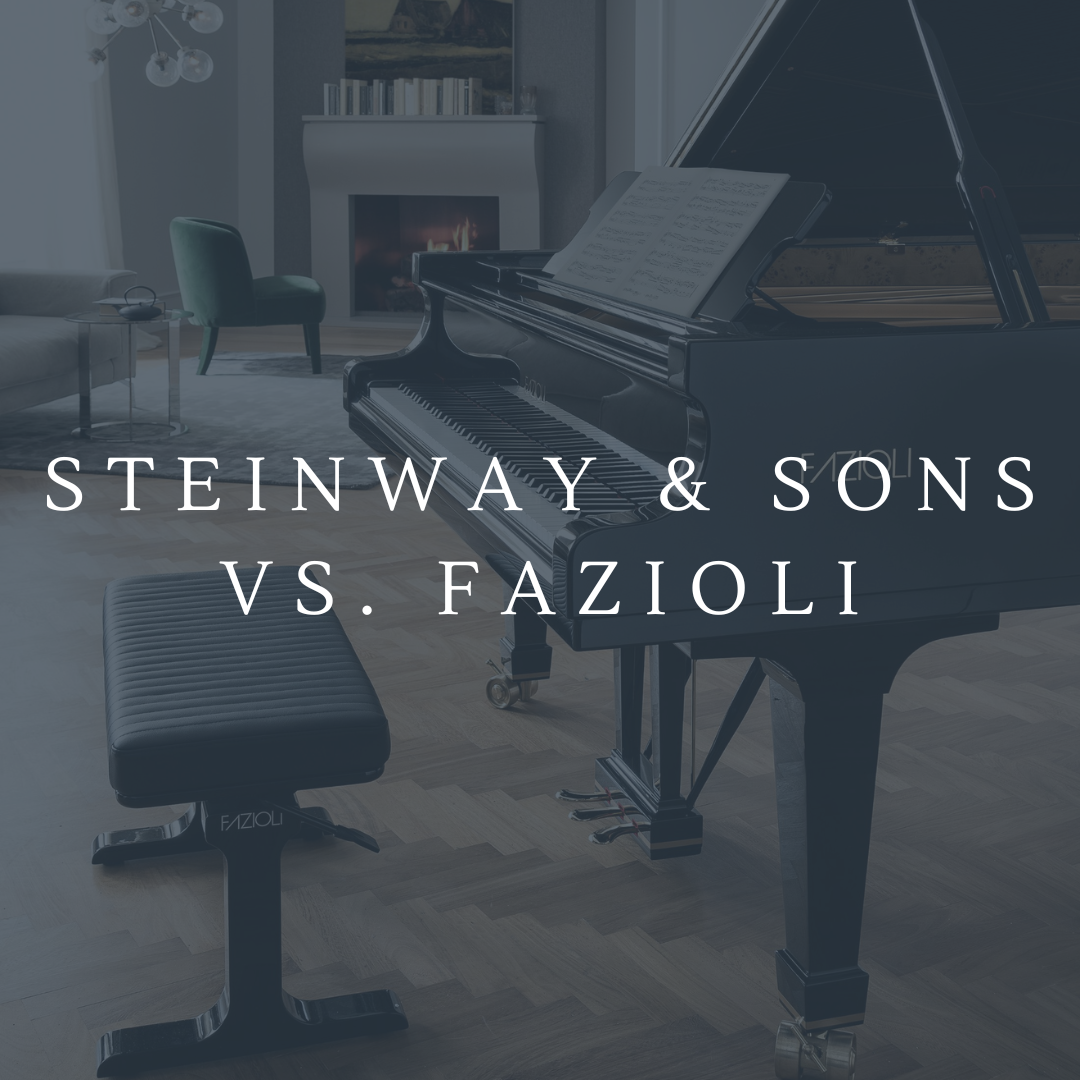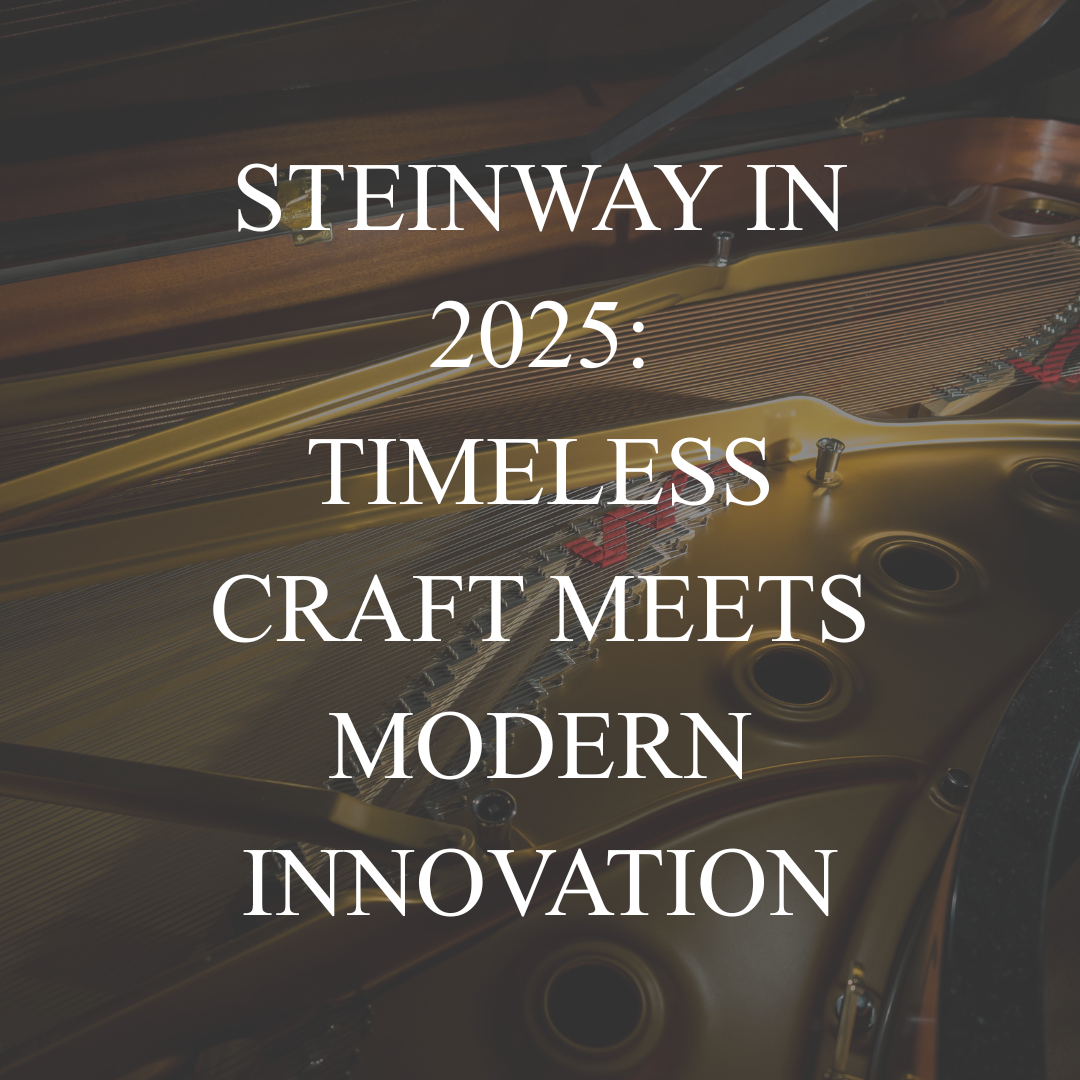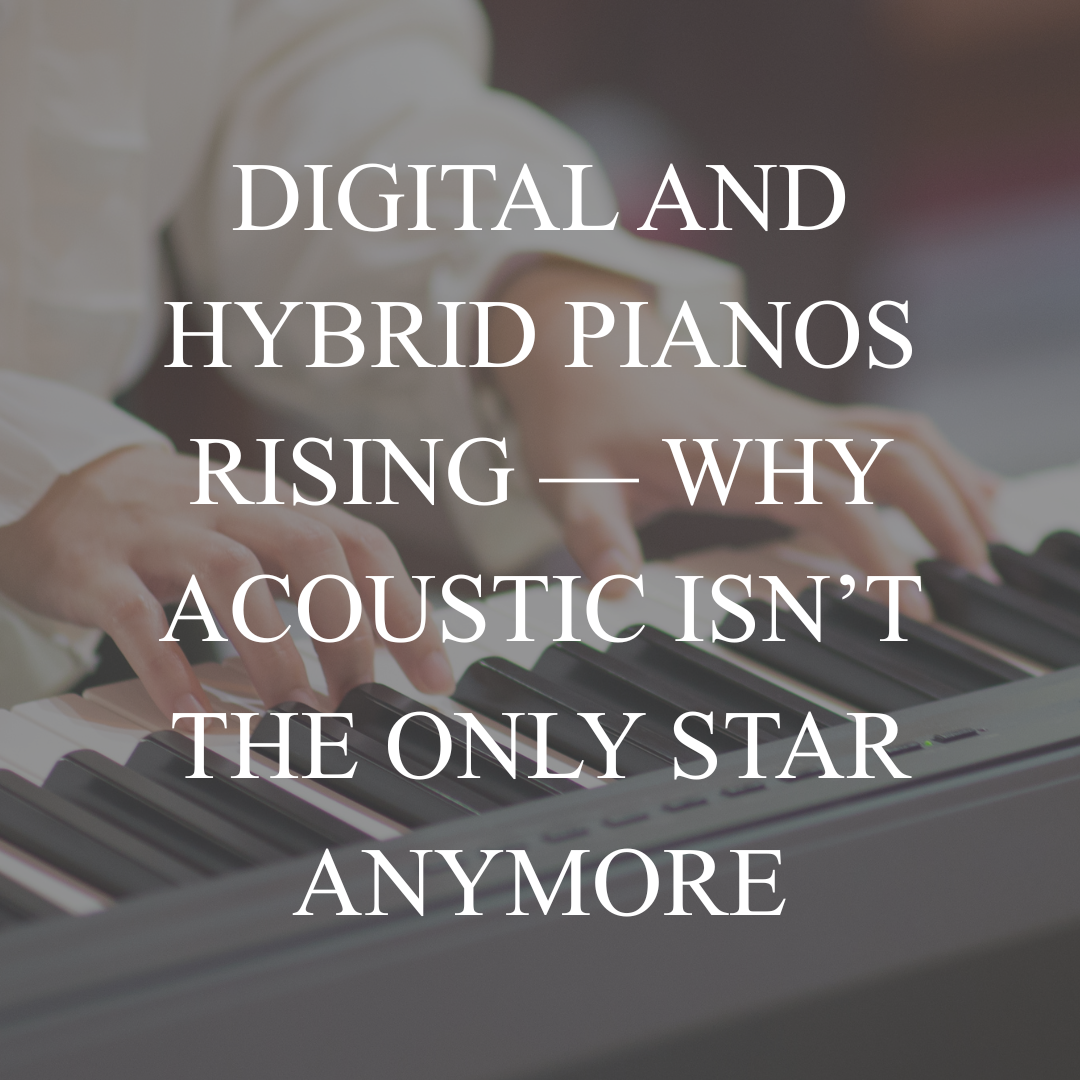
Let’s delve into the fascinating world of pianos and compare two iconic piano brands: Steinway & Sons and Fazioli.
Comparing Steinway and Fazioli ultimately comes down to personal taste. Steinway offers versatility, a strong artist program, and technological innovations. Fazioli, on the other hand, boasts meticulous craftsmanship, a warm sound, and a sense of exclusivity. Both brands have their unique characteristics, making them beloved by pianists worldwide.
Whether you prefer the American legacy of Steinway or the Italian artistry of Fazioli, both brands continue to shape the world of piano music.
Comments will be approved before showing up.

For more than a century, Steinway & Sons has defined what it means to build a truly exceptional piano. But in 2025, the brand isn’t just honoring tradition — it’s evolving. At Northwest Pianos, we continue to see how Steinway’s balance of craftsmanship and technology keeps it ahead of the curve in a fast-changing industry.

Over the last few years, acoustic pianos have held the prestige. But the tide is shifting. More musicians, educators, and beginners are turning to digital and hybrid models for their flexibility, technological perks, and lower maintenance demands. According to industry reports, the global piano market is now incorporating “smart integration” and “compact designs” as key drivers for growth. The Business Research Company+2PR Newswire+2

In 2025, one of the most fascinating developments in piano technology is happening at the intersection of artificial intelligence, robotics, and musical expression. A research team recently introduced PANDORA, a diffusion-based policy learning framework that enables robotic hands to play piano pieces with precision and expressive nuance. The system uses language models to measure stylistic quality and musicality, blending human emotion with algorithmic accuracy. arXiv